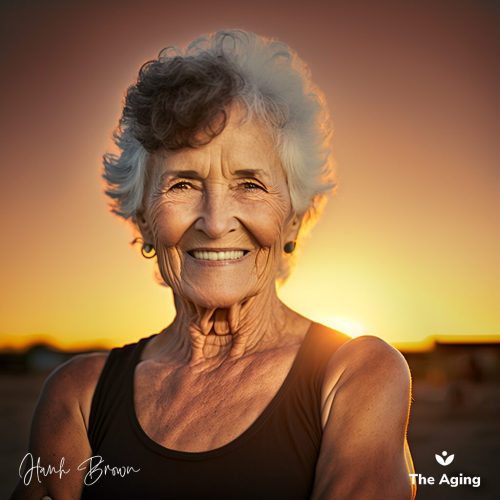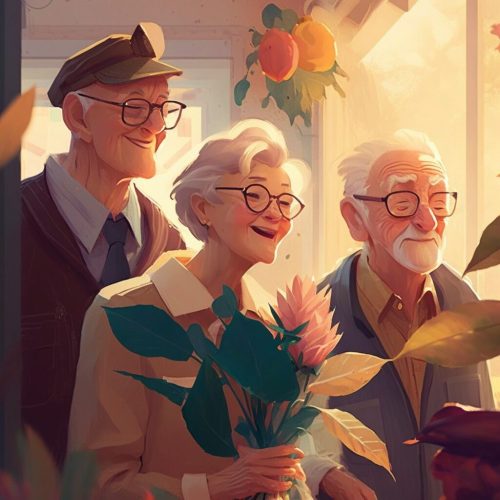Hanh: 00:00:00
Hi, I’m Hanh Brown, the host of the Boomer Living broadcast and the founder of AI50. Our platform passionately explores AI’s role in addressing aging population challenges. Our aim? Well, to forge a unified AI ecosystem that serves older adults diverse needs. We focus on dignity, purpose,
Hanh: 00:00:21
and community engagement. But we’re here to bridge gaps in the fragmented AI landscape. Creating solutions that are innovative, accessible, and respectful. Our goal is to enhance lives and promote longevity in this fast paced digital era. So today, we’re going to be diving into empowering the golden generations. We’re exploring the evolving world of
Hanh: 00:00:48
senior care, uncovering latest trends, and facing the challenges of an aging society. We’ll demystify aging, uncover myths and truths, and envision the future of senior care. So joining us is Amy Legrand, a gerontology expert with 20 plus years in marketing to baby boomers, seniors, and caregivers. She’s a founder of
Hanh: 00:01:16
Brand Metal in New York. The ex senior vice president of brand strategy at Blue Spire Senior Living. Amy’s known for her strategic planning and client management skills, especially in the baby boomer market. Her career spans key roles at virtual health and top mature marketing agencies, making her as a key voice in gerontology. So Amy.
Hanh: 00:01:44
Welcome to the show.
Amy: 00:01:46
Hello. Thank you for having me.
Hanh: 00:01:48
Yeah. Well, thank you. Thank you for being here and shedding light on the important work that you do and serving the important generation. So can you share with us something personal or professional about yourself?
Amy: 00:02:03
Um, well, I have multiple little passions that I have, but most people don’t know about me as I have a really strong love for dogs. And so I foster rescue puppies. Right now I have two blind eight pound Jack Russell chihuahua mixes at my house. So, um, that’s also something that, um, I have a great passion for, um, beyond my advocacy work in Alzheimer’s and, um, I’m
Amy: 00:02:25
working to dispel ageism in everyday life.
Hanh: 00:02:31
Mm hmm. Wow. Well, thank you for the work that you do, and I’m excited for today’s conversation. Me, me as well. Great. So, you know, every professional has that one moment that really defines their path. So in your journey through gerontology. What was that moment for you?
Hanh: 00:02:48
And can you tell us about how it sparked your passion and how it continues to influence your work and decisions?
Amy: 00:02:55
So a lot of people have asked me kind of why I decided to get into gerontology. And every time I think about that question, I always go back to almost a very young age. I make a joke that I’ve been in gerontology since I was nine years old. And I was very fortunate to volunteer in adult day centers and, and nursing homes when they were still called
Amy: 00:03:17
nursing homes, um, at a very young age. And I had developed a very big passion for seniors at that age. And I think it influenced how I kind of looked at when I was looking at a career path. I remember. I was in school and I actually started out in school as a math major and I was deciding that that probably
Amy: 00:03:38
wasn’t a career path for me because it didn’t include interactions with with people and I found gerontology and at that time I’m like gerontology what is that and I actually had to look it up myself back then. and realized that that was actually something you could study. And I immediately changed my major and really made it my life’s work
Amy: 00:04:04
to focus on this area and become a gerontologist and, and really be able to learn about what aging actually means. And I’ve always come from aging and gerontology from a very business minded perspective, even in school. I, a lot of the people that I was going to school with were becoming geriatric care managers. They were taking a social
Amy: 00:04:27
work path or policy. And I really was very intrigued by the idea of what were businesses and what were products and services that were being. Brought to market for this population and also how they were portrayed and how they were marketed Um, so I always really had that um Approach we actually in my gerontology program. I was the president of the gerontology
Amy: 00:04:56
student association sexy stuff here and I actually started the first ever business summit, um, at my school to have companies and organizations come and talk about how they were focusing on the aging population. So I think those were very pivotal moments in my career that kind of started me on a trajectory of kind of where I knew I wanted to focus in
Amy: 00:05:23
gerontology and not necessarily take the traditional path, um, with social work. So.
Hanh: 00:05:29
Mm hmm. Well, bless you. We’re very thankful that you’re here and doing the work that you do. So we know that there are many myths and misconceptions about aging. From your rich experience, what’s the major truth about aging that you think gets misunderstood or ignored and how have you been working to
Hanh: 00:05:48
change this perception in your field?
Amy: 00:05:51
Yeah. So I think. It really, it gets down to the fundamental definition of what aging is. If you really think of what aging is, you are aging the moment you are born and you are, you know, evolving from that first step or for them first word and you are aging. And I think a lot of times.
Amy: 00:06:13
Aging, and the word aging is associated with the old or older. And I think we put a lot of stigma on that idea of aging, that aging actually means bad. But if you think about it, when you look at aging and you look at how you grow up, you know, there is this point where aging is good and you’re gaining wisdom and you’re gaining understanding
Amy: 00:06:40
and you’re learning and you’re aging. And then there seems to be this point, and none of us have necessarily defined when quote unquote that point is. And where all of a sudden it aging becomes a negative and, you know, some industries think it’s 30 and some industries they get 65. And so I think one of the things that I always have tried to say around, you
Amy: 00:07:13
know, dispelling these myths around aging is that aging isn’t necessarily. And why do we always reflect on it in the negative light? And then I also think that we also believe that when we start to age or get to a certain level, and this is different for everyone, that all of a sudden we become different people. And one of the things that
Amy: 00:07:38
I always like to remember. is it’s still me or it’s still them and because we all as we’re getting older, we don’t necessarily have a really good, you know, introspective on kind of what our age means. We’re just acting as we are as individuals as who we are. We, we don’t, I don’t think a lot of us, at least I don’t myself and I know
Amy: 00:08:07
a lot of people that I’ve spoken to. don’t necessarily identify with age. It’s not, it’s not a definer. It’s a, it’s a state, it’s a state of being at that moment, right? Age is relative, right? And, you know, I always use the correlation that there can be, you know, 90 year olds standing on their head doing yoga and then
Amy: 00:08:26
there can be 70 year olds that have, you know, five chronic conditions. So age is, you know, is Is this fluid thing? It’s not necessarily defining. And so I think that’s another aging myth is that this this age that we talk about and we’ve put these stereotypes or these expectations on what it means. And there are so many other
Amy: 00:08:51
elements that affect, um.
Hanh: 00:08:55
Very true. Now I’m sure you’ve seen how views and treatments of aging have changed. So can you talk about how these attitudes and practices have evolved? And do you, I guess, what, what do you think has been the main driver behind this big shift?
Amy: 00:09:10
So I used to say many years ago, um, you have to remember that I was studying gerontology in the 90s and I used to say this thing called, is gerontology cool yet? And I have been saying that for 20 plus years now, is gerontology cool? My business partner actually kind of teases me now about it because he’s like, so Amy, is it, is it cool yet?
Amy: 00:09:32
And I will tell you that I have had a great perspective of watching, you know, culture and also our consumer behaviors evolve. And I will tell you, when I was first working at Age Wave, um, I think you guys are familiar with Ken Dykwald. I was a part of that group. In the early two thousands, and we were doing a ton of
Amy: 00:09:58
research around baby boomers. Um, baby boomers had not kind of hit that crest of that age yet. We were all kind of in inta anticipation during that time of what’s gonna happen. You know, kind of like when the, the clocks turned over to 2000. We’re all anticipating what is gonna happen when this baby boomer crusts over that 65 threshold and.
Amy: 00:10:22
Not a lot of companies were focusing on it. A lot of companies that were talking to aging were care based. They were hearing aids. They were, yeah, I’ve fallen and I can’t get up. Right. The care. Yeah, the Medicare, the, all of
Amy: 00:10:34
those things, those very traditional senior products, you know. Um, very health care based, um, very needs based products. And one thing that I have seen over the years is there is more representation, um, as it’s, as we’ve gotten older, you know, if you recall during the times there weren’t a lot of TV programming that really
Amy: 00:11:02
represented what those lives look like. Um, there were not a lot of products that were marketed that were mass products. Most, all of mass products. We’re marketed to a younger population. And so I think we have started to see that evolution happen where it’s actually the representation is there. I don’t think necessarily we’re 100 percent there yet, but I think there is a
Amy: 00:11:28
better understanding of the buying power. The other area that I think is also really interesting is the caregiver market. Um, is the, the, we didn’t even acknowledge that this was happening. Um, in families, you know, many years ago, and the stories and the representation around what’s happening with family caregivers, whether it’s them caring for their older parents
Amy: 00:11:54
or even Children or even, um, Another, another family member or friend. And so I think that’s interesting. I think what I believe is the catalyst is I do think population having a huge representation of population in the, that aging group, you know, a big group of people get cut, get loud. Um, and so I think that’s also really important.
Amy: 00:12:21
I think we also, because. There has been awareness around the brain drain of older people needing to retire. And I think that we have acknowledged the You know, the need to support that older population to stay in their jobs and also continue to support the workforce around that. I think that has been a representation. But I also think one thing, and I
Amy: 00:12:47
know this in my advocacy work with Alzheimer’s, is Sharing your story. I think people have become more vocal. I think social media has allowed us to be able to share what is going on, and we’re being able to share our personal experience, and I think a lot of people are kind of raising their hand and agreeing that I’m dealing with some of those struggles, too, and I think we’re
Amy: 00:13:13
developing a higher level of awareness Around this aging population and what, and what, what that experience looks like.
Hanh: 00:13:23
I think what you and I are talking about is more of the modern senior now. Mm-Hmm. and forward, right? Correct. For instance, baby boomers now they want more of a personalized lifestyle. Because we are all unique in our needs, in our healthcare, in our likes and dislikes and hobbies and so forth.
Hanh: 00:13:42
So very much needed. And I think social media and then COVID, COVID has uncovered so much in the realm of older adults. I mean, there’s loneliness, there’s engagement and also healthy living, right? So in some ways. There’s a lot of work to be done, right? But it’s great to uncover and have a voice and a strong voice in that matter.
Amy: 00:14:11
Yeah. And I think, you know, your point around COVID is, is really valid. I think COVID did kind of shed light on a lot of issues. Um, I personally, uh, my dad, um, passed away from Alzheimer’s and dementia in late 2020. And so I personally watched what COVID did to his.
Amy: 00:14:33
Well, being and then also how to navigate the health care landscape, the home health landscape, um, the senior care landscape in that environment. Um, and. It made me realize even as a professional and I, and I talk about this and in my Ted talk is I that just a position. I was like, I’m a professional and I’m struggling.
Amy: 00:14:54
This is my job. This is my life and I’m trying to navigate Alzheimer’s and dementia during covid and manage our senior care system and I will tell you it was Um, disheartening and enlightening all at the same time.
Hanh: 00:15:09
Mm hmm. So true. All right. So let’s talk about marketing to seniors. It has unique moments of success. So can you tell us about a campaign that really resonated with the senior crowd and Especially interested in, um, how this experience shaped the way you create messages that I
Hanh: 00:15:25
guess connect with this generation?
Amy: 00:15:32
Yeah. So when I was thinking about this, there was two campaigns that have always really resonated with, with me as a gerontologist, but also I think pull at the experiences that people are having. Um, my, the two examples that I’ll share actually are related more to the experience as a family caregiver. And, um, I would love to share the clips,
Amy: 00:15:54
but I was trying to find the old ones and I couldn’t find the commercials, but there was one that you may recall it was by Gillette and it was a son and a father. And there was a story being told about how the son. Had now is taking care of his dad, and there’s a very intimate and compassionate, um, scene where the son is using this new razor that is made for older faces.
Amy: 00:16:26
We all know what older faces have them a little bit more dense and a little bit more wrinkles and, you know, maybe not the perfect complexion of a young, younger face. And talked about the value of that, but they’re sharing this very intimate experience about how the son is shaving his dad. Um, and so there’s a whole campaign that
Amy: 00:16:45
Gillette did that I thought was just very well done of, of sharing that experience. And then there was another campaign that recently came out. It’s actually from the UK. It’s the UK Alzheimer’s Organization. And they shared a story, um, where it was all based on wedding vows. And I don’t know if you’ve seen it, but it’s really great.
Amy: 00:17:10
And they, the, it’s a dialogue, I’m watching the husband and wife interact as he’s slowly progressing further into Alzheimer’s disease. And she is the over, the voiceover is her voice reciting her wedding vows. And that I think is just really a wonderful. Um, tribute and that one personally, um, really had a
Amy: 00:17:40
big effect on me and my family. I shared that with my mom because when my mom was caring for my dad with Alzheimer’s and we kind of had gotten to the point where she couldn’t handle it anymore. She had personally said that she felt that she broke her wedding vows. And so I just thought that that ad did a really good job of summarizing the struggle that all are are struggling
Amy: 00:18:02
with when they’re, you know, having to evolve their relationships. So I thought those two campaigns did a really good job of advocating for, um, caregiving in the Alzheimer’s. Um, instance, and then I think really showing consumer value in the Gillette example, so.
Hanh: 00:18:24
I think it’s wonderful that you can capture the essence of the hardship, the struggle, but also the respect and the dignity for those with dementia in this, in these ads. So now, enage. Go ahead.
Amy: 00:18:38
Oh, I was just going to say, and to kind of answer the second part of your question, which was kind of like, how do you, you know, actually affect and have a successful marketing to seniors? Um, I have been working over decades on kind of refining an approach to how do you target the senior market? And when I was working at age wave, there was a model that was
Amy: 00:19:07
called the life choice model. And it really was focusing on trying to figure out how you segment this population. So we, we use the word senior or mature audiences or whatever we.
Hanh: 00:19:21
There’s many cohorts.
Amy: 00:19:22
Yeah, exactly. And in many definitions of that, you know, in theory, that could span, you know, a 50 year span, you know, you could, you could define older consumers as 50 plus, right? You could have defined older consumers as 80 plus. And, and if you’re even talking about 80 with our, You know, where we’re going with life expectancies these days, you
Amy: 00:19:43
know, you could be talking, even if you’re talking 80 plus, you could be talking a 20 year span of an individual. And so what I have developed is this thing that takes you past age and cohort and gets to some other factors that probably have a higher propensity of influencing consumer decisions. So age and cohort. You can have somebody who’s the same
Amy: 00:20:09
age, you can have, let’s, let’s use that 70 year old that I talked about earlier, a 70 year old that’s doing yoga every day, walks two miles every morning, lives on their own, or you could have a 70 year old, like my dad, who’s had dementia for six years. Has just had a, you know, heart surgery and is having steady decline with his multiple chronic conditions.
Amy: 00:20:39
And so the life of that person looks very different and also their consumer habits look very different. So I always say, yes, we can look at age or yes, we can look at cohorts and that may give you some understanding of where that person may be, but I don’t think it necessarily drives. Any type of consumer decision making. I think things like physical health,
Amy: 00:21:02
mental health, um, the aging brain, how your brain is aging, and what’s evolving with the aging brain. Demographics. Even some of the social norms, um, around ageism. Life stage. People who are caregiving, people who become grandparents, people who take second jobs, who have second marriages.
Amy: 00:21:26
All of those become more Um, of an influence and the other one that everybody always kind of gets surprised about that I talk about is time. We know that seniors and people who are older have a lot more time and I think their availability of time. Changes how they may interact with nonprofits or how they may interact with products.
Amy: 00:21:52
You know, they may be seeking out products because they have so much time. There’s a lot of products that are coming to the market these days that are trying to manage that time and add space to that time. And so I think that’s an important element as well. And so I’ve kind of developed this model that we use with our
Amy: 00:22:12
clients to help them identify what part of the senior market are they actually looking to target versus.
Hanh: 00:22:20
Right. And I think it’s very personalized, just like what you described. It’s a wide range and every step of the way, there’s unique cohorts that have specific health conditions, interests. financial conditions, you know, so it’s very much, I think to say older adults, I understand that such a
Hanh: 00:22:41
wide gamma group of demographics, but we must hone into each of these demographics into their specific needs.
Amy: 00:22:50
Couldn’t agree More.
Hanh: 00:22:51
Yeah. So now let’s talk about Alzheimer’s awareness, which is a huge, a very crucial field. I’d like to hear about some innovative strategies that you’ve used in your campaigns and what are some tactics that have made real impact and why do you think it works so well?
Amy: 00:23:06
Yeah. So Alzheimer’s is, you guys have probably figured out is very, very, very near and dear to my heart. And one of the strategies that we focus at the Alzheimer’s association is. About sharing your story and a lot of people may not have a direct story like myself, you know, my father and my grandfather both passed
Amy: 00:23:31
away from Alzheimer’s and dementia. And so I have a very personal story as it relates to dementia and then I have a lot of. Stories that I share based on kind of what I’m trying to do. So we do a lot of advocacy work, but then we also, fundraising is a big part of it. We are still trying to get to a cure with Alzheimer’s dementia.
Amy: 00:23:53
And one of the things that I have found most effective is being able to share that story with people to get them to personalize that cause. And I think that’s highly effective and also personalizing that story to the audience that you’re talking to. So, as an example, so one of the stories that I share when I’m out talking about Alzheimer’s and dementia
Amy: 00:24:23
that is really trying to raise awareness for the need for research. So, when my dad had dementia he was still pretty lucid. Um, and he had said to me, he goes, he goes in, this was kind of a moment where he’s kind of trying to find his words and he says, “So I went to the doctor and got a pill for my heart and I also was able to have a surgery.”
Amy: 00:24:55
He had a quadruple bypass surgery. “And they fixed my heart.” And he pointed to his head and he asked me, “Why can’t I go to the doctor and have them do the same for that?” And this was, oh, probably like 2015, 2014 when he asked me that question. And at that time, there was no, there’s no treatments, nothing, you know, the diagnosis is, we’ll wait and see.
Amy: 00:25:28
And, and so one of the things that I share that story because I think sometimes people don’t even realize, oh, that’s right. With Alzheimer’s, you, you can’t go to the doctor, there isn’t a pill, there isn’t a surgery, there isn’t any of those things. And so I think. Being able to share those stories, articulate those stories to kind of prove
Amy: 00:25:49
your point has been very effective, I think, in that, but figuring out, kind of, what part is your story, you know, you can’t tell somebody else’s story, so it has to be this authentic, um, experience, and then people who don’t have direct connections, Also have stories around how they’ve seen people they love and and sharing those stories. So I think we all know the power
Amy: 00:26:12
of storytelling and I think that’s been the huge piece of it for me. I actually was fortunate to do the ultimate storytelling. I actually on the TED stage. I shared my dementia caregiving story of my dad, and I will tell you that that was hugely effective for raising awareness around some of the challenges, um, of dementia.
Amy: 00:26:37
And I talk about communication. And one of the strategies that I find to be helpful, especially when you’re talking about very, very serious topics, is there are humor in all of those things. There is humor and comedy. And And I always like to use humor because Unfortunately, most of us don’t necessarily, we, while the Sarah McLachlan, you know, rescue puppy
Amy: 00:27:09
commercial can be effective, I think also sometimes people want to be a part of something and also it doesn’t always work. always need to be so sad. Um, yeah, that can be exhausting.
Hanh: 00:27:26
It is. It is. And I think it’s important to shine the light on. Despite the decline, we still have to embrace life. And after so many tears over a period of time, you learn to have a sense of humor about the grief. That’s what keeps you going.
Hanh: 00:27:46
You know, you can’t live in the misery. You can’t live in the loss. You can’t live in the past, so you have to live in the future. And part of adapting to that future is a sense of humor.
Amy: 00:27:58
I completely agree. And I, that’s my personality is very much so, you know, being a sense of humor that, that, like, I, I got that from my father. So it’s, um, we used to make a lot of jokes and we’re very silly during a lot of those times. And I think providing that humor and providing that levity, um, also draws people together.
Amy: 00:28:17
Mm-Hmm. , because we all know those are moments. Um, that we all have, and I, I was actually, I shared a story at an event, um, it’s kind of a little bit of a, it’s, it’s, unless you have a dry sense of humor, you may not get it, but I shared the story and it was a little off color, um, around my dad’s dementia. Um, and it was about him putting on his,
Amy: 00:28:38
uh, we were helping and doing Depends and we, one day my mom was so frustrated and she said, I mean, I can’t do this anymore and I’m like, okay, I’m like, I’ll help dad, but I had been at a point where, you know, if you’re a family caregiver, unfortunately, body parts and all of that, you know, it doesn’t matter if you’re a husband, wife, father, daughter, mother, son, you know, all
Amy: 00:29:01
of that kind of goes out the window. And I had decided that I was kind of done with all that for today. I had a really long day at work. And so I showed my dad how to put his Depends on. with his legs, like putting his pants, his pants were still on and my pants were still on. So we put on the Depends and we
Amy: 00:29:17
were doing this whole thing and I finally got him all worked out. And then, um, he was like, got it. We’re good. I’m like, okay, great. I’m like, it was kind of a futile exercise, but my mom felt better about it. And then the next morning I get a call from my mother. And guess what?
Amy: 00:29:34
My dad. Put his Depends on, all by himself, over his pants.
Hanh: 00:29:39
Over his pants. That’s what I was thinking. Oh no.
Amy: 00:29:43
And I’m like, okay, I guess lesson time. But my mom had, my mom kind of laughed. And it was, we just had some levity around it, of what we were dealing with. And it was just a really, You know, just those moments where my dad was so proud of himself that he had got it and he figured it out. And, um, and, so.
Hanh: 00:30:02
It’s full circle, isn’t it? You remember, remember the times when, you know, like my kids were potty trained. I celebrate it right now. It’s full circle. Same thing with my mom. And I mean, I have folks with dementia and Parkinson’s in my family. So at some point in life, you have to embrace the humor you
Hanh: 00:30:20
just described to keep you going, you know?
Amy: 00:30:23
And and I think that’s where it’s most effective in those campaigns. I think, you know, having those elements of humor, sharing your story, I think being authentic and being real. I think where people have connected with me, um, is I’m. Always kind of sharing kind of those struggles also kind of sharing the those moments where we’re, we’re just
Amy: 00:30:43
real and we’re just, we’re human in these moments and I think sometimes caregivers, especially in Alzheimer’s awareness, sometimes get shamed or you’re like, you can’t do this or you shouldn’t do that or whatever. You need to manage that behavior and you need to blah, blah, blah. And there’s this all these lists of things for caregivers.
Hanh: 00:31:05
It isn’t so much about guidelines because we’re still dealing with human beings and we’re human beings and their struggle is real for everybody. So guidelines are good because I think it’s meant to respect and provide guardrails to give boundaries of what you should and shouldn’t. But I think at the end of
Hanh: 00:31:23
the day, we’re human beings. If something is funny to you and not for others. Laugh about it, you know?
Amy: 00:31:32
Well and give some grace. Yeah. No, it’s like, oh, you didn’t you didn’t follow all the guidelines today Oops, you didn’t you didn’t manage that behavior very well today Oops, like, you know, I think sometimes in caregiving, especially, and as it relates to Alzheimer’s awareness, um, there’s so much stigma around
Amy: 00:31:52
even wanting to get diagnosed or even wanting people to know that you have it. And I think that’s the hugest barrier that we have with Alzheimer’s awareness right now is people’s fear of being treated differently because they got the diagnosis. And right now. Early diagnosis to early treatment is our only hope.
Amy: 00:32:14
Right. And so we have to get the disease early, but we can’t have people terrified to get a diagnosis because what it may mean to. their family or what it means to their, you know, their structure within the, the family structure or what all of that means. I’ve heard terrible stories about families immediately taking away the
Amy: 00:32:35
keys because they, you know, they heard that there was a diagnosis. It’s like people will not, will not go and try to be preventative around this if they feel that they will be judged. Um, because
Hanh: 00:32:51
I think it’s so important that we have these conversations forthright and normalize these conversations because the reality is now and much more in the years to come. And it’s going to hit everybody if, if it hasn’t, you know, if not already, nothing to be ashamed of. I mean, I only can say this because we’ve been dealing with
Hanh: 00:33:14
this for the last 10 years. So it’s normal for me and it’s this kind of support and education. I’m trying to find the right word is that it’s we need to embrace the decline hard to do, but it’s gotta be a must. What do you think?
Amy: 00:33:34
I, I think we need to, yeah, embrace, I guess, decline or maybe just our humanness of who we are and embrace kind of where we are. And I think everybody just needs to give a little compassion to themselves. I think, you know, I think people, especially with Alzheimer’s and any of these neurological disorders, um, are very hard on themselves.
Amy: 00:33:57
Um, and they, I do think they spend a lot of time faking it, um, because they don’t want to show that level of vulnerability or they don’t feel that they’re in a safe place. To do that because people are judging them job, you know, jobs are firing people over these things families are taking away the keys or taking away the finances or, you know, removing that autonomy.
Amy: 00:34:20
And so I think for people who have these diseases and have these diagnosis, we have to create an environment where we’re not being so reactive to our perceptions of what, um, and, so it’s, it’s challenging, it’s, um, and, uh, you know, I don’t know, you know, how do we create this, you know, we talk about dementia friendly world or age friendly world, you know, where
Amy: 00:34:48
we have compassion, but a lot of times people are just afraid, you know, an Alzheimer’s diagnosis really does kind of throw a wrench in a lot of marriages and life plans and roles in families and. And, you know, how do you, how do you cope with that as a caregiver, as a family member, as a friend, um, within that diagnosis? And I think that’s something that
Amy: 00:35:15
we have to reflect on as well. How do, how do I create an environment? Because many people are fighting for that person to come back and they can’t, they cannot stop and take a moment and maybe just try to create something new. From with the person that they have today and just be part of that moment.
Hanh: 00:35:38
When you say come back. As far as I know, it doesn’t, and that’s okay. It’s now and forward. It’s to be where they are and embrace whatever this journey is ahead. And it’s different for everybody. You know, you can’t, you can’t place certain characteristics of
Hanh: 00:35:56
one to all because I can speak from, let’s say my mom, my dad, and my older brother in law and so forth. It’s very unique. And I think what I wanted to mention is that what you want to do is encourage them. Um, family members to encourage them to continue to live, live outside the home, meaning go out to eat, go see
Hanh: 00:36:13
movies, whatever that is, shopping. You want to encourage that activity engagement, right? Because you don’t want to have them feel like it’s so monumental to get them out of the house and I’m so embarrassed of what the potential behavior could be. So let’s just keep them at home. Yeah. You know, that’s the
Hanh: 00:36:33
worst thing you could do. Okay. And it is a major task. So, I mean, I know for my family. It’s a major undertake to, to, um, you know, have my mom go out to eat, but we have a lot of kids too. So we help.
Amy: 00:36:47
Yeah. But they just want to be there. They just want to be there.
Hanh: 00:36:50
Yeah.
Amy: 00:36:50
I have a little tip for that. So, one thing that I found very beneficial is I had these little cards. Printed that, that identified them as sharing with a waiter or whomever we were interacting with that said that my dad had dementia. And I would just casually just kind of hand the card to the person. And in some instances they would
Amy: 00:37:11
hold on to it, in other instances they’d hand it back to me. And it helped because then they had awareness and I, of the situation, what I was dealing with. And then most people were very happy to accommodate and be supportive and, um, and wanted to allow them to be able to continue to just have that autonomy of, of living their life.
Amy: 00:37:37
So
Hanh: 00:37:37
Yeah, just, yep. Yep. That’s great. So now let’s talk about brain drain is a big challenge in senior living. So what innovative methods do you recommend for retaining and nurturing talent in this field, and do you have strategies or initiatives that work well for you?
Amy: 00:37:53
So, I guess, you know, with brain, I guess brain drain, we’re kind of talking about, you know, I think there’s two elements of kind of employee and relations. One is trying to bring talent. To us. Um, and I think how do we get people to want to work in environments of senior living or even senior products?
Amy: 00:38:15
Um, and how do we bring that, that innovation to them? And, you know, it’s really challenging and, and we can look at employment from every spectrum, right? So we have everything from, you know, our aides and our CNAs, you know, dietary, all of that, that’s happening at a one on one care level. And big challenge I think there is
Amy: 00:38:36
existing is what is that work environment and The tasks at hand, like if you’re going to go work at Starbucks or Marriott or, you know, any of those organizations doing very similar jobs, housekeeping, dietary, you know, that looks very different than if you’re doing housekeeping and dietary and, and aid assistance in a senior environment, you know, we are dealing with,
Amy: 00:39:07
you know, an older population, we may be dealing with not so many fun activities related to that job. And so I think sometimes people are weighing those pieces. I do know that there’s a lot of senior living communities and organizations that have been very successful in creating an environment where it becomes more than just the paycheck.
Amy: 00:39:28
And I think a lot of those organizations have created programs, whether or not it’s You know, opportunities for growth, whether it’s robust, you know, benefit plans, um, and to kind of combat against some of those other industries. I think one of the other areas is, is that we do need to work on bringing talent to the industry. I have seen so many people that
Amy: 00:39:54
have worked their career and have been in senior living and then post COVID, COVID was so detrimental from a leadership perspective. We had multiple of our clients that we work with. I’ve had. CEOs that I worked with for decades and had almost a mass exodus of senior leadership post COVID because they just
Amy: 00:40:20
didn’t want to deal with it anymore. They were exhausted. Um, and many of them took a break and came back. Many of them retired and just decided to move on. And I think a lot of that had to do with regulations, how those things were being regulated, decisions that were being made that weren’t even.
Amy: 00:40:43
Based on their companies, but we’re happening at a federal and state level and I think to get talent we have to solve some very fundamental issues in the senior living area of What does caring for our senior population actually look like and what does that actually mean? Our model is struggling. You know, we are, there’s a lot of senior skilled nursing facilities that
Amy: 00:41:15
are no longer can operate because of reimbursement and what it’s costing to actually care for somebody. So, you know, we’re going to this heavy assisted living versus skilled. We’re going back to the hospital, you know, so these models of how we’re actually going to do this is really important. How are we handling preventative care?
Amy: 00:41:39
For Um, how are we handling all of these things? So we’re not dealing with a high percentage of people needing skilled nursing care. So I do think that a lot of people, it’s hard to work in senior living. It’s, it’s, it’s a hard job. And I think a lot of people have been like, I love it.
Amy: 00:42:01
But at some point. It’s just too much. It is. And I think we, we have to look at the bigger issues because operators can only do so much. When they’re up against things that they don’t necessarily have any control over, especially during COVID, right? Correct.
Amy: 00:42:17
Yes. Like there were some states that were shipping COVID patients into skilled nursing in senior. How do you even, how do you even handle that? And so I think right now we’re seeing a little bit of that drain and how, how are we going to get that talent back? You know, as somebody who
Amy: 00:42:36
literally from college on has been. In this industry and been watching this industry, I have seen that the toll that has been taking, but there are there are improvements. There are innovations coming. Um, I think hospice and palliative care is finally getting the respect it deserves, um, and is being seen as a very strong resource for families and for communities.
Amy: 00:43:04
I think the level of understanding around cognitive decline is increasing. I think creating environments where people actually want to live versus feeling like they’re being put away, it’s huge innovation. So there’s, are innovations. And I think there are opportunities for a lot of people to use, to have very, very fruitful careers.
Amy: 00:43:28
In this space, doing something very, very authentic. One of the things that we talk about at Brand Metal is that we want to work with companies that help others. And so, whether or not that’s in senior living or wherever, but we want to be helping companies that are helping others. So, that’s, I think, that’s our mission, um, that we have as an organization.
Amy: 00:43:47
And I think there’s a lot of people that want to be aligned with that. And I think, Senior Living needs to talk about that story more.
Hanh: 00:43:53
Mm hmm. I think so. And another component is we need to enhance the education as early as possible. In high school even, you know?
Amy: 00:44:04
Well gerontology programs are not well attended. They’re not seeked out. They all struggle. Um, there are a few wonderful programs throughout the country. There’s just not a lot of people looking to those professions. They talk about, you know, geriatricians even, you know, are not,
Amy: 00:44:23
seeked. And so, we need people who understand, um, this population, um, to be able to serve them and at a greater scale beyond senior living. And I think there’s a brain drain across the industry of just aging, not as senior living, you know, senior living, you know, I think the statistics I’ve heard is only serving about 10%,
Amy: 00:44:39
10 percent of the senior population. And so, that other 90%, you know? What does, what does that model look like for them? What does that, you know, that mid market person that, that senior living may not even be an option.
Hanh: 00:44:57
Yeah, that’s true. That’s true. It’s 10 percent of the population. So there is a wider market that we must address. So now let’s talk about handling sensitive gerontological data. This comes with great responsibility. So what do you think is ethical principles that are crucial in this
Hanh: 00:45:16
process and how do they guide your data management and privacy strategies?
Amy: 00:45:22
Well, I think, you know, we are, I think most of it is most of the data that I work with and what we’re doing is we’re trying not to get down to the individual level. So whenever I’m doing any type of work with our clients, we are being very specific. You know, very protective of individual names and, um, you
Amy: 00:45:41
know, using your unique IDs. I’m assuming that what you’re referencing is how do we make sure that we’re not sharing, you know, HIPAA violations or any of those types of things in, in our data analysis. And so, um, and how do we, how do we handle that? Um, we also, one of the things that we do with our marketing to understand
Amy: 00:46:01
our marketing data is we also have. Um, calls recorded and those types of things in order to collect some of that data, and we, we are making sure that all of that is HIPAA compliant. So, I think, you know, sometimes, some of it is unavoidable in some of the conversations that you’re having, and I think, We try to generalize in all of the research work that
Amy: 00:46:22
we’re doing with our companies. And when we’re talking to prospective residents or prospective clients, um, when we’re reporting out, we are not doing verbatims. Um, we are not, um, doing any of that type of work that would be in violation of those. We try to keep that, um, that sensitive information.
Hanh: 00:46:42
Mm hmm. Mm hmm.
Amy: 00:46:44
You know, I have also been doing some work where we’re doing a lot of videoing of and people sharing stories and talking about their experiences. Um, and so in some of those instances, it’s becomes kind of unavoidable. Um, I know definitely I probably am in 20, 000 HIPAA violations every day when I’m talking about my family story and my dad’s health information.
Amy: 00:47:05
But thank goodness I’m his medical power of attorney or I was. So, you know, in theory, I’m able to talk about those things. So, you know, I think in my work, and there’s definitely. People who are providers and those types of things and senior living that need to have be have a level of sensitivity and data So I would probably defer to them
Amy: 00:47:25
on talking about How providers could keep that data secure in the marketing world. We’re a little, um, we’re a little soft and squishy.
Hanh: 00:47:33
Yeah.
Amy: 00:47:34
Um, in some instances, um, especially as it relates to our brand work and our brand research. And so we do try to keep it in generalizations, um, a lot in our, our work. Sure. So, I don’t know if that answered your question.
Hanh: 00:47:45
Yeah, yeah. No, I think it’s important because, you know, data is the differentiator.
Amy: 00:47:49
Yeah.
Hanh: 00:47:50
And we have to be very guarded for the clients. I mean, that’s what we do at AI50. I always.
Amy: 00:47:57
I think in our segmentation, I’m sorry to interrupt, but on our segmentation work, I think we try to create frameworks. Mm hmm. So we’re not necessarily You know, we have individual data that we may be analyzing with unique IDs, but the segmentations help us to be able to drive marketing strategy.
Hanh: 00:48:15
Yep. I like that you said segmentation. It’s generalization, the trends, the segments. So I think in that regard, pretty safe because I do the same. I think that’s to be expected, I guess. So, as far as emerging technologies or methods, what do
Hanh: 00:48:29
you see as the next big thing? And how would this shape the future of gerontology?
Amy: 00:48:36
Well, I think, I still don’t think that we’ve solved kind of what I, I define as aging in place technologies. I don’t think we have figured out how to effectively use technology in the home in order to support the senior population. I’m a huge. Advocate for ambient technologies, which, um, don’t require engagement by the senior, um, to be involved in that.
Amy: 00:49:06
So I’m very interested in, in those areas where we’re kind of being agnostic. Um, you know, working in Silicon Valley in the early two thousands, um, I saw a lot of new technologies coming to bear where they were monitoring things and. And I just, I don’t think monitoring if it’s not ambient is going to be the future because I don’t think people necessarily want to admit that they
Amy: 00:49:39
need to be monitored, nor do they necessarily want their daughter to know how long they’ve been on the toilet in the morning.
Hanh: 00:49:47
Exactly. No, absolutely. I’m with you.
Amy: 00:49:50
Yeah. So that’s an area where I’m a little concerned. I think, I think it becomes very similar to the hearing aid in the drawer. Um, those technologies get removed and then they don’t become effective. I think the ones that are in the home that are ambient, that are monitoring, that are, but they’re not
Amy: 00:50:07
necessarily seen as kind of big brother. Um, I think those are a future. Of technology. I’m extremely interested to see how AI evolves, um, around that, that problem as well. Um, and how people how seniors can actually be more participatory, um, in that with using a I, um, I really hope from a tech.
Amy: 00:50:38
I don’t know if technology, but I’m really hoping that we are going to have some more innovation, um, around some of these things. diseases that are going to and are costing our health care system billions of dollars, um, and trying to figure out those solutions, whether or not they’re preventative or whether or not they’re an actual cure.
Hanh: 00:51:01
Mm hmm. Well, back on the clinical studies that you talked earlier, I’m in favor of that, but I think we have to be very clear with an open eye when there are clinical studies and FDA approved. I mean, who are we advocating for the senior? It’s the family or the pharma, you know, and I’ve seen too many of that.
Hanh: 00:51:22
So it’s a fine line. Always put the senior at the center focus. And even with these products that you and I are describing, is it product focus or is it senior focus? You got to ask those questions.
Amy: 00:51:36
Well, and I think what senior is also the big question around that, you know, we can talk about, you know, we talked about senior being a general term. And I think. When we’re working with startups, we, I do a lot of consulting with startups. And one of the questions I always ask is like, who is your audience? And I think a lot of people are
Amy: 00:51:54
very general in that statement. I think they’re much more successful. Um, if we can break down more specifically who that part of their.
Hanh: 00:52:06
Who that ideal customer profile is, you know, in addition, their age, their likes, dislikes, physical, mental abilities and so forth. So honing in that you’re better, I have a better likelihood of satisfying that pain point.
Amy: 00:52:24
Well, and I think also integration of that unit, one of the things that But in the senior care model, and especially around, I think, when we get to the higher levels of care, I feel like the family caregiver is kind of put aside. And I would love to see senior care models that integrate the family caregiver more into the day to day to make it more aligned with their life.
Amy: 00:52:52
And that’s one of the things that I, you know, have a great passion for is trying to figure out how do we bring That family caregiver back into the care model back into the lives of people who are in communities and create communities. That embrace the family versus kind of keep them out. And because I think, I think family caregivers are an instrumental part
Amy: 00:53:21
in making sure that we can care for the people in these communities. Um, because I’ve heard many, many stories about when you move somebody into a community, people think, oh, well, I’m, I’m, my work is done and you spend doing almost as much work as well because you’re trying to, to manage that, that, that care setting as well. So that’s true.
Amy: 00:53:46
And I would love to see a little bit more of a ecosystem around that resident or that family member that includes the people who know them best.
Hanh: 00:53:56
Yeah, that’s very true. We have a few more minutes, so is there anything else that you would like to add before we wrap up?
Amy: 00:54:03
Um, I guess I would maybe make a call to action, um, of people, you know, a lot of people that are listening to your podcast are probably in the senior space already, but encouraging people to share their story of why they got involved in senior care and senior living. Um, Because I always share, like, why I became a gerontologist and I, you know,
Amy: 00:54:25
when I declared my major back in the day, my dad was like gerontology, what, what are you going to do with that? And I think raising awareness around careers in aging, um, also, you know, being able to talk about the aging population. I think we as professionals, um, need to create our succession plan. Who are we educating and who are we
Amy: 00:54:48
working to make passionate around this space to take our place? Um, down the road. So because there are so many gerontological professionals that are retiring and leaving that brain drain we were talking about, and who is the next one that’s going to take the realm? We, we lost a lot over the last five to six years of these leading
Amy: 00:55:15
gerontology professionals and we, we need to continue the education and the awareness around the importance. I’ll focus on this population.
Hanh: 00:55:24
Wow. Well, thank you. Thank you so much. As we wrap up today’s episode, I want to thank you, Amy, for your time, your expertise and your passion and your personal stories in this important field that you’re doing. And it’s very personal. I know it’s professional, but I can
Hanh: 00:55:39
see it, how it deeply resonates. And the care and the commitment that you give. So thank you.
Amy: 00:55:47
Well, thank you.
Hanh: 00:55:48
So our conversation from debunking the myths about aging to discussing the future of senior care and thanks to Amy has provided us with a wealth of knowledge and inspiration. So as you can see, the journey ahead in gerontology is both challenging and exciting, but with immense opportunities for innovation and change. So thank you for those who are watching
Hanh: 00:56:10
or listening now or in the future. I hope that you find the conversation insightful and that. If you are considering to join the field of gerontology, highly recommended reach out to Amy or myself. It’s not, gerontology isn’t just about understanding aging, it’s about enhancing the lives of our seniors. So stay tuned for more engaging talk
Hanh: 00:56:35
and there’ll be future live events. Look on my feed and see you next time. Take care.
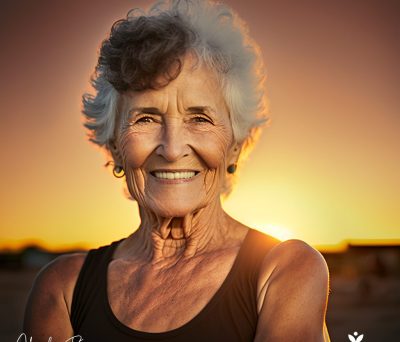

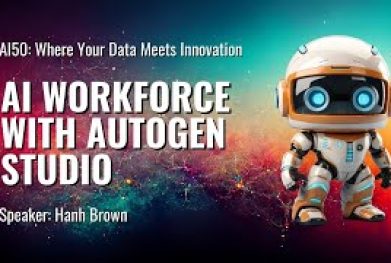
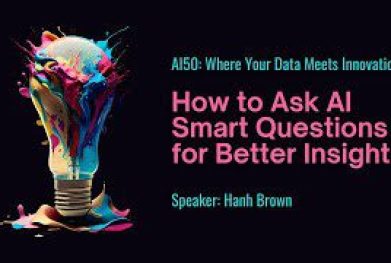
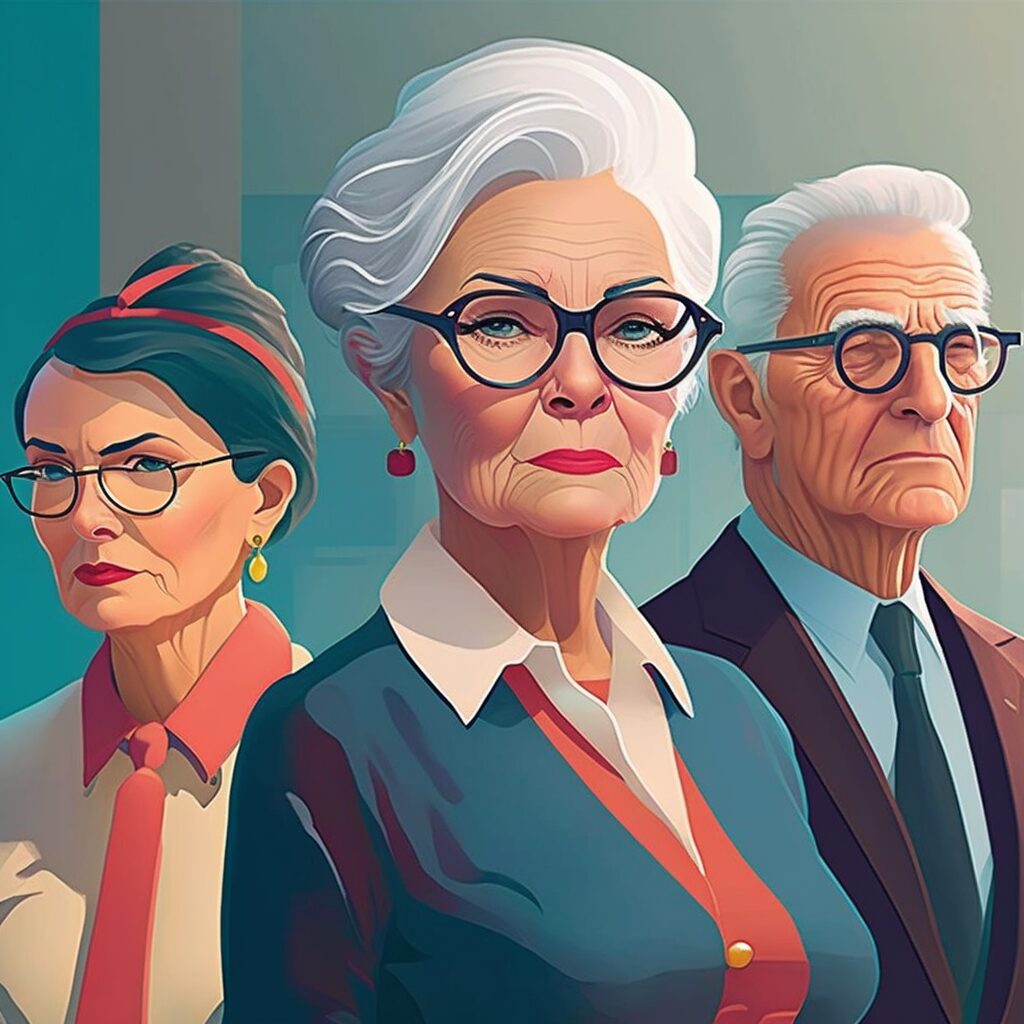




-q9j076255wsswcevv3386z1war8ejonaamkjvlms20.png)
